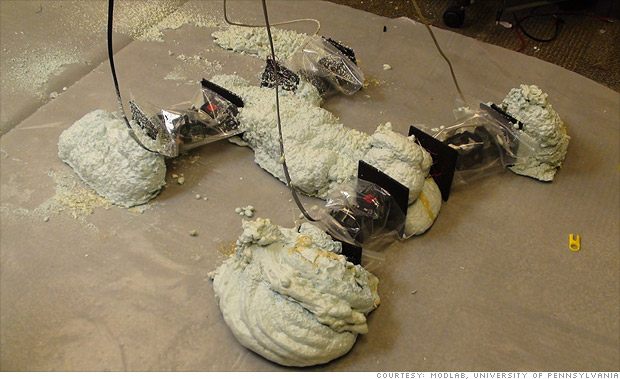
A sample Foambot shows off the machine's ad-hoc flexibility.
Science fiction authors have long imagined AI machines so "smart" they can upgrade themselves. They'd love Foambot, an experimental creation of the University of Pennsylvania's Modular Robotics Laboratory. Foambot builds other robots out of self-hardening foam.
"The basic idea is that if you run into a situation where you don't necessarily know what you might need, you can build a robot on the spot," says Mark Yim, a University of Pennsylvania professor of mechanical engineering and applied mechanics.
Foambot works with several modules that can be rearranged in a myriad of ways. The remote-controlled bot is equipped with 1 liter of foam reagent that expands into 28 liters of foam. That building block material can be deployed for whatever the robot requires. If it needs a staircase to climb, it can spray and build one.
The engineers behind Foambot see it as a solution for exploring unknown conditions, on ventures ranging from intelligence missions to disaster recovery expeditions. For example, relief workers arriving on the scene after an earthquake or tsunami often need to adapt. Foambots could pitch in on a variety of problems, from shoring up cracking walls to searching the rubble for survivors.
The crew is currently working on ironing out Foambot's bugs and developing the next version. Commercialization is years away, but the demo units show that the concept is viable -- and geekily awesome. -Laurie Segall
NEXT: Prescription-switching eyeglasses